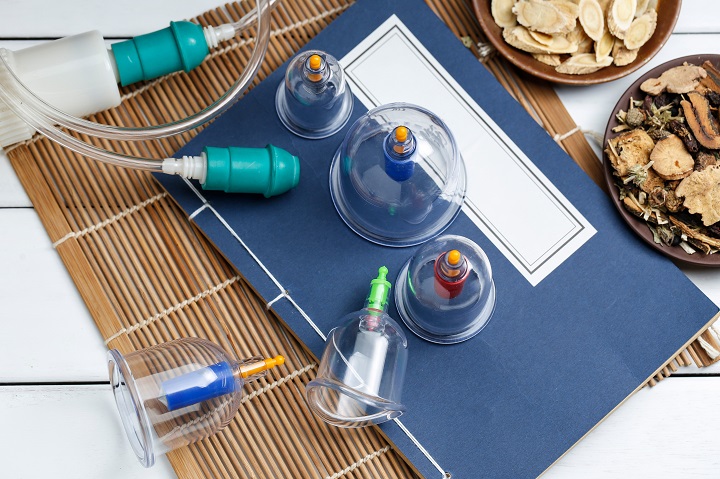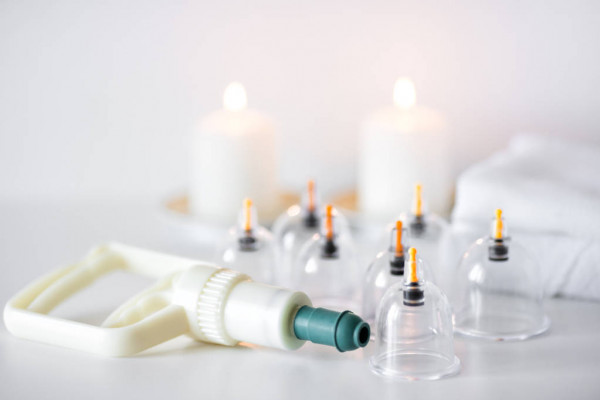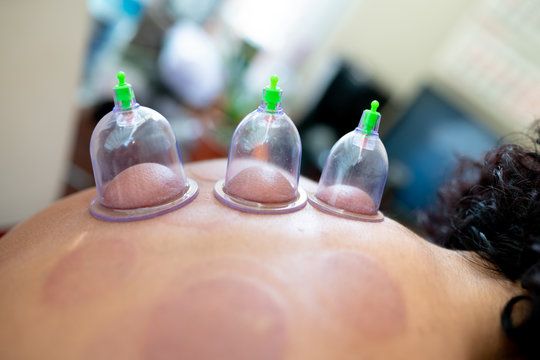
Hijama Cupping Clinic
Hijama is (“sucking”) is the Arabic name in traditional medicine for wet cupping, where blood is drawn by vacuum from a small skin incision for therapeutic purposes. It is reported that the Islamic prophet Muhammad said, “Indeed the best of remedies you have is hijama, and if there was something excellent to be used as a remedy then it is hijama.

What should I expect during a cupping treatment?
During a cupping treatment, a cup is placed on the skin and then heated or suctioned onto the skin. The cup is often heated with fire using alcohol, herbs, or paper that’s placed directly into the cup. The fire source is removed, and the heated cup is placed with the open side directly on your skin.
Some modern cupping practitioners have shifted to using rubber pumps to create suction versus more traditional heat methods.
When the hot cup is placed on your skin, the air inside the cup cools and creates a vacuum that draws the skin and muscle upward into the cup. Your skin may turn red as the blood vessels respond to the change in pressure.
With dry cupping, the cup is set in place for a set time, usually between 5 and 10 minutes. With wet cupping, cups are usually only in place for a few minutes before the practitioner removes the cup and makes a small incision to draw blood.
After the cups are removed, the practitioner may cover the previously cupped areas with ointment and bandages. This helps prevent infection. Any mild bruising or other marks usually go away within 10 days of the session.

Preparing for your cupping appointment
Cupping is a long-practiced treatment that may help ease the symptoms of both temporary and chronic health conditions.
As with many alternative therapies, keep in mind that there haven’t been extensive studies performed without bias to fully assess its true effectiveness.
If you choose to try cupping, consider using it as a complement to your current doctor visits, not a substitute.
Here are some things to consider before beginning cupping therapy:
- What conditions does the cupping practitioner specialize in treating?
- What method of cupping does the practitioner use?
- Is the facility clean? Does the practitioner implement safety measurements?
- Does the practitioner have any certifications?
- Do you have a condition that may benefit from cupping?
